Do you think it is relevant to try and imbibe decision making skills in your child when he is too young? Give it a thought? If you possibly agree to this, would it not be a moment of pleasure to see your child grow up to be a decisive individual.
Basically, it all starts with the little steps we take at the start that will give us a fruitful end result of having decision making skills instilled in the child. It is one of the aspects of upbringing. If your children are not used to taking decisions at a tender age, when they mature up it could put them ‘in dire straits’.
This article helps parents understand the importance of teaching decision making skills to your child and an idea on how to go on this journey of making your child a decisive one.
How Important Is Decision Making To A Child?
Take a look at these points to understand the seriousness on working on the decision making skills for your child.
Point No 1: Decision making will come to your child’s rescue in the outside world
 Your child is not going to be under your nose 24/7, there will be times that your child would get out of home and be around unknown people. There could be a situation that would demand your child’s decision immediately.
Your child is not going to be under your nose 24/7, there will be times that your child would get out of home and be around unknown people. There could be a situation that would demand your child’s decision immediately.
If your child is not taught on how to take a decision, your child may find it difficult to fit in the outside world and as a parent you do not want that for your child. Hence it is important to teach your child on how to make decisions.
Point No 2 : To boost a child’s confidence

When you leave it to your child to decide, they get a sense of freedom and are delighted with the thought that their parents trust them and gave them the permission to take a decision.
Step by step when your child starts to take decisions their confidence gets strong and not just this, your child will find you approachable which will work wonders in your parent and child relationship.
Point No 3: To Shape, a Child’s Analyzing Skills
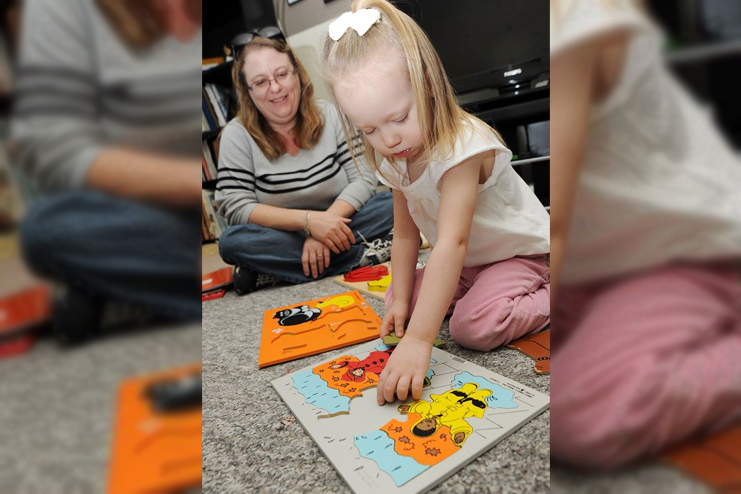
Primarily it is a parents duty to train the child to be independent of taking his/her own decisions. Given the fact that parents are always on the serge of protecting their child, every parent must get out of that protective zone and allow their child to make mistakes while making a decision in order for the child to learn and analyze what went right and wrong with that decision.
Point No 4: To Make your Child Independent
 Being independent does not come down to just being financially independent. However, even a baby can be independent when you observe their activities. If you want to make your child independent on little things it is necessary that you allow your child to take independent decisions. For example, begin with little things such as allowing your child to choose what to wear, asking your child the place he/she wants to visit.
Being independent does not come down to just being financially independent. However, even a baby can be independent when you observe their activities. If you want to make your child independent on little things it is necessary that you allow your child to take independent decisions. For example, begin with little things such as allowing your child to choose what to wear, asking your child the place he/she wants to visit.
Point No 5: Will come to use in future

If your child practices making his / her decisions at a tender age, in the future your child will be more responsible, sensible and will know how to make a fair judgement between what is the most suitable. He/she will face lesser concerns on anything to do with his/her personal or professional life. If you want your child to have a smooth future try your best ways to be a great mother or father and allow your child to just be sometimes.
At What Age Can A Child Make Decisions?
It is futile to expect your child to make mature decisions in life. At the same time, it makes sense to know how to engrave decision making skills in your child based on their age group. There is a pattern of how you teach or allow your child to take decisions based on their age group.
Infant Phase
When your baby is tiny he/she understand only body movements and facial expressions. At that age, you can allow your baby to take small decisions and making sure they are not given too many choices.
Babyhood
Post infancy stage between 2-4 years a baby gets to know the more world and probably starts going to school too. During this phase, a child is getting used to the social culture and is in that zone of making personal choices with their tender thinking.
Childhood
At this stage, a baby is used to seeing the world through their baby eyes and now its time that a parent does the right nurturing in order to get the child set to be a good decision maker in the future.
Decision Making Skills – How To Teach Kids?

It can be a task initially on how to teach your kids with decision making skills. Further, it will be worth the effort you put in. Here are steps to help your kids make decisions.
1. Jot down all that is important for your child to know

There are specifically two ways by which your child is going to learn on how to take decisions.
- You will instruct your child based on what you jot down now.
- Besides what you jot down, your child will learn by observing and analyzing situations and learn to make a decision.
Talking of jotting down, do your homework first before you want to teach your child the art of decision making. Make a list of all the decisions you think your child should know how to take based on his/her age. The mother and father should collectively brainstorm and jot down everything that’s intended to be taught.
2. Set a Good Example

Your child is going to look up to you to learn in the future, ensure that you set the right example for your child in terms of how you express your emotions, how you communicate with them and behave in front of them ensure that they learn the right things. In terms of decision making, the way you can set the right example is by telling your child about how you took decisions in childhood and the good that it did to you.
Give your child examples of your childhood and how you learned or if necessary tell them stories that will influence them on learning to take decisions, the right and wrong will come in due course of time.
3. Teach Your Child to Think Before Deciding
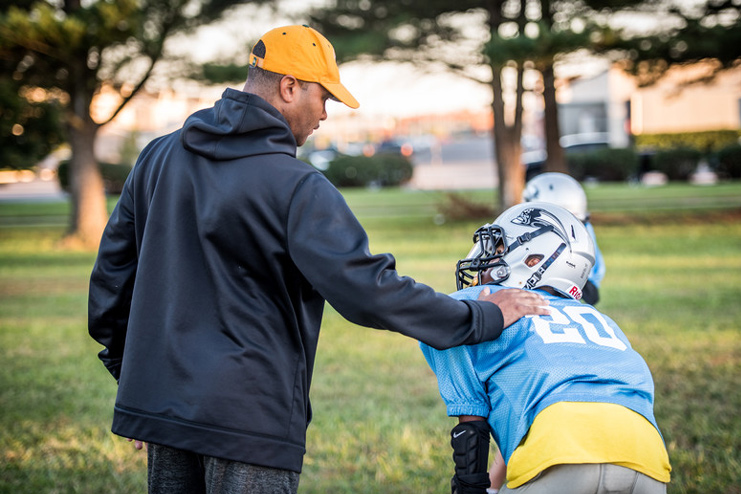
Every child is surrounded by a lot happening around and your child might be mislead or lost and may not know what to do. Hence, before you start to teach your child anything about decision making.
Make your child aware of the importance of first giving the situation thought, teach your child that once the decision is taken it cannot be reversed in some cases so before your child decides on something teach your child to understand what can happen after the decision is taken. You will have to quote examples for your child.
For instance, if you want to teach your child on being able to take the right decision of being well-mannered, say for example you want to teach your child that you must not snatch things, tell them before you they think of snatching something how would it affect the opposite person and in the last they might end up troubling someone which is not the right thing to do. Likewise, teach them in a way that they understand that they have to think before they take any decision.
4. Sharpen their Values

When the child commits mistakes parents must not take it for granted that the child is small and will learn later. It is alright to think that way, but as parents, you must do your job of correcting your child so that by the time the child has grown up he knows the difference in good or bad.
Hence, parents should work on sharpening values in a child from a tender age so that they are molded that way by the time they grow up and when they grow up it is important that they follow ethics in their personal and professional life which is a must when they have to take decisions in life.
5. Draw the Right Balance in Being Strict and Lenient

It is not good to make your kids afraid to talk to you nor is it good for you to be so lenient that they take your silence for granted. If you want to teach your kids the right way to make decisions you got to draw the right balance.
When it is necessary, you can also say a no to them, you do not have to say a yes to them on everything. When you do not say a yes to them on everything they tend to understand over a period of time that there is something not right about the decision. Not that they will always take the right decision but they will may be make mistakes and understand what is for them and not for them.
6. Make them Follow a Discipline

When disciplined is followed that is when a child learns to make wise decisions. Some of the ways to follow the right discipline is by teaching them the importance of time management, how to respect the other, how to behave in public, how to speak to people etc. When you work on these things, they will know so much that making a decision won’t be tough for them and they will learn it with practice.
7. Apply a Practical Approach

It’s time that you put to use all that you have been teaching your child. We are all made in such a way that we clearly understand what is been told to us when we practically get to experience it.
Create situations for your child and gauge how well has your child understood how to take decisions and if your child is able to analyze and take right decisions or not. If you think that your child is unable to take the right decisions yet, you can further work it out for your child.
Activities for Decision Making in Children
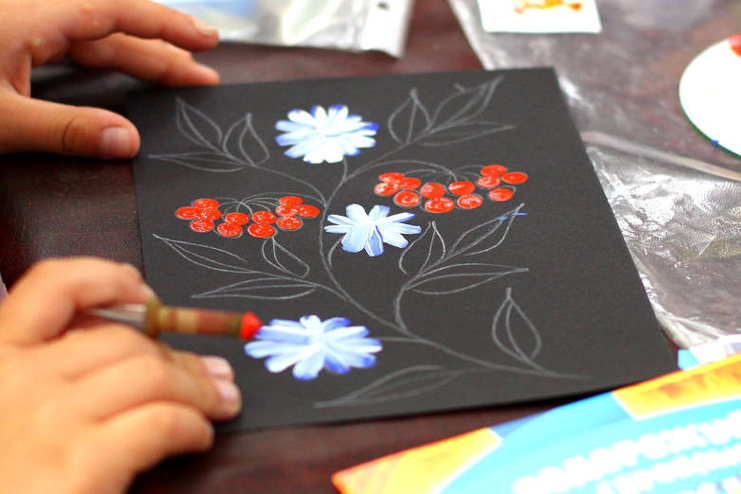
You may know the best possible ways to make your child learn how to take decisions. Despite that you want to understand how well can you get your child involved in activities that could help you understand how well is your child being able to make a decision.
Do not stop your kid from who he/she wants to be at first. If you think that your child should have used a better approach to make a decision, in the end, you can give corrective feedback to your child. Remember to be nice, you do not have to be harsh with your child.
Here are some of the ways to teach your children how to make decisions through activities. Here is what you can do.
1. Scenario game
How To Play :
Play the question answer game with your kid to understand how your kid makes decisions. In this game, you can give your child a scenario and ask your child what he/she would do in that situation.
Watch this video to get an idea on how to create a scenario for your kids and see what do they do.
[embedyt] https://www.youtube.com/watch?v=RlYxBdNxi-A[/embedyt]
2. Make your kid watch an interesting video
[embedyt] https://www.youtube.com/watch?v=0NpQronsFic[/embedyt]
3. Play the puzzle game
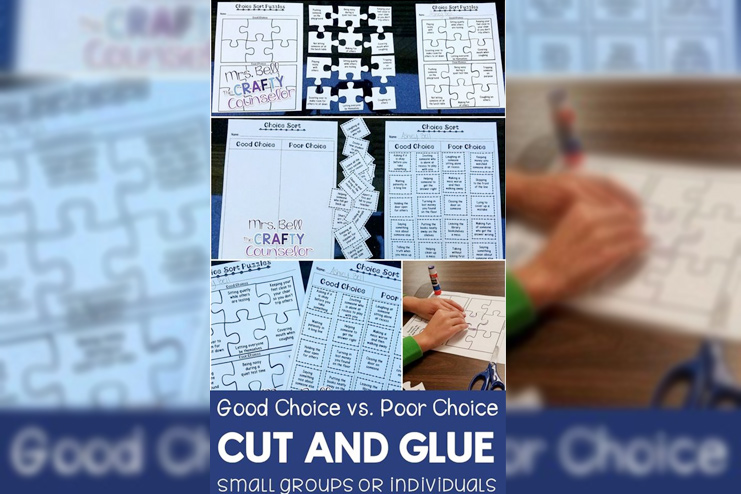
When your child plays this game you will know how much has your child understood to understand the difference between a good choice and a bad choice.
4. Play Games that Require Thinking
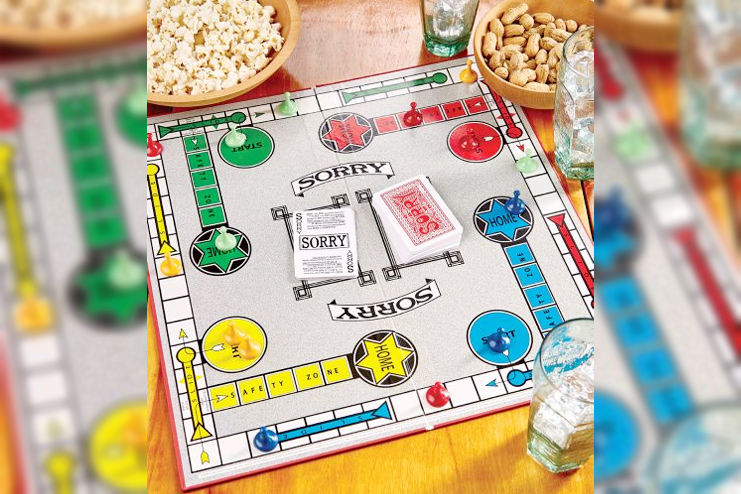
One of the ways your child can develop on their decision making skills is by playing games such as snake and ladders or caroms. In these games, you require to think and analyze what to do next to win the next move. More than even hearing you out your child will indirectly learn to understand how to make decisions because your child would have already played games that would have required their attention to take decision at that moment.
To conclude it all in a nutshell, it is substantial to guide your children in taking decisions. However, ultimately leave that choice of taking a decision on your children so that they are tough and competent grown ups in the future.
As parents you need to keep in mind your child’s age and accordingly know to what extent to allow your child make a decision.










































